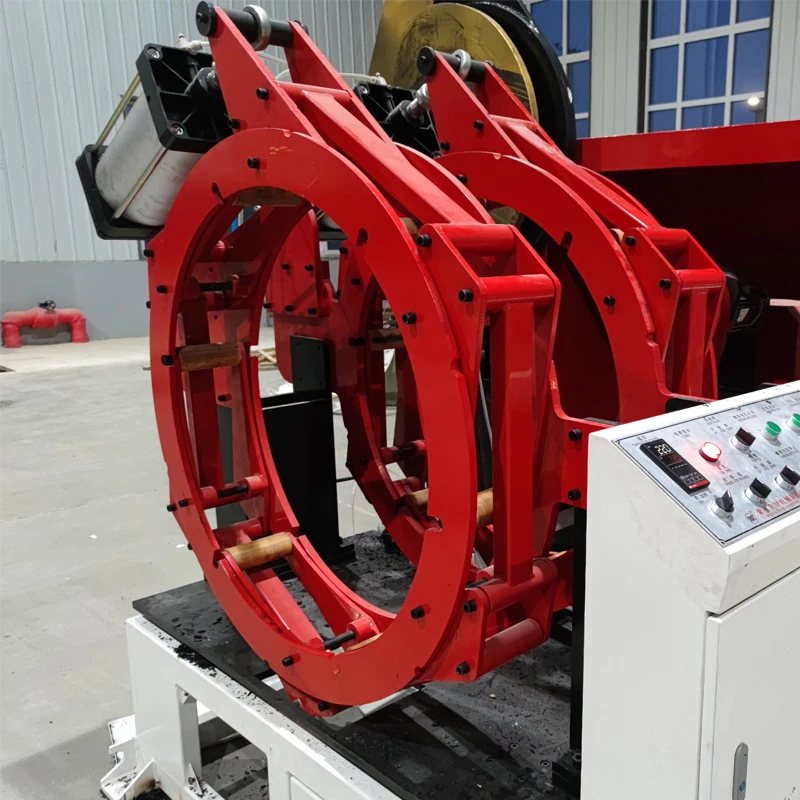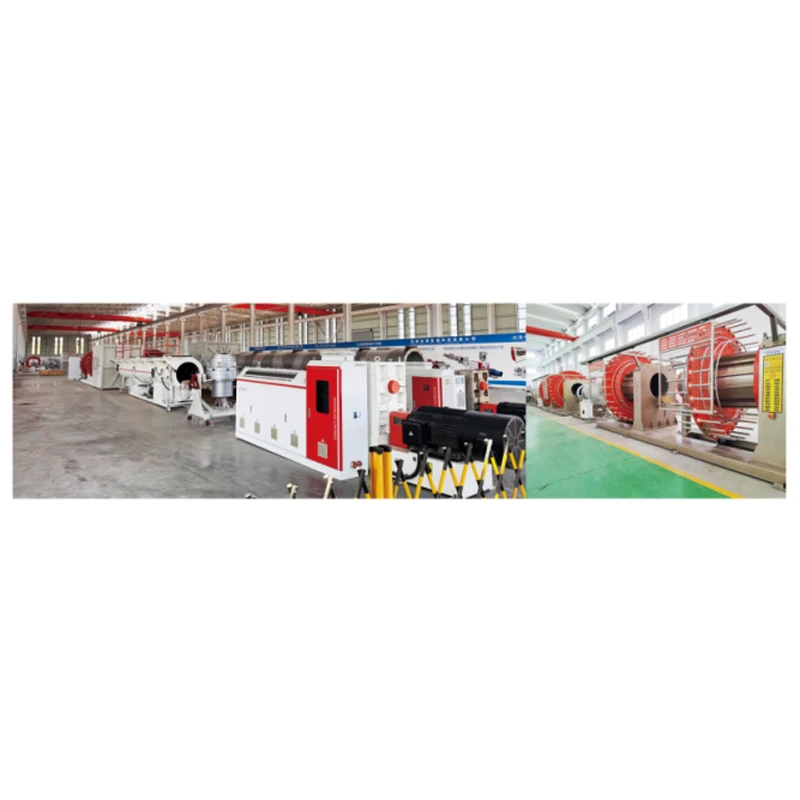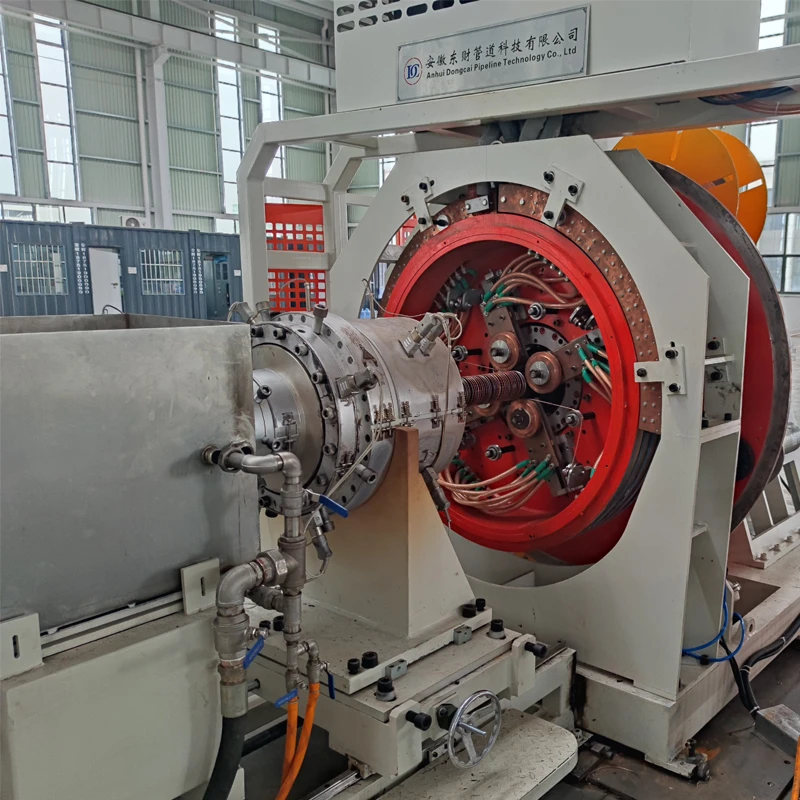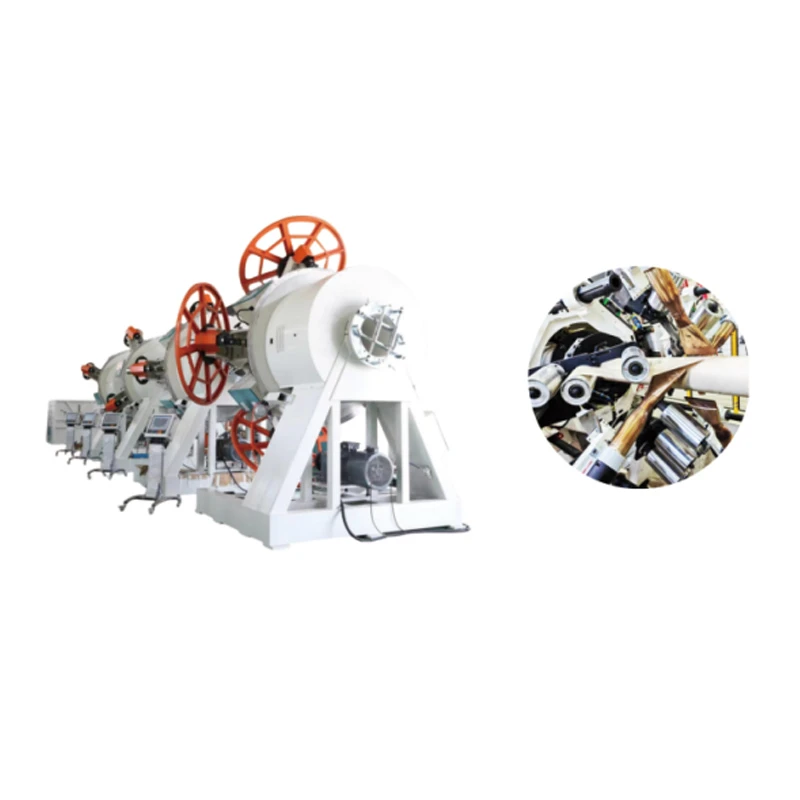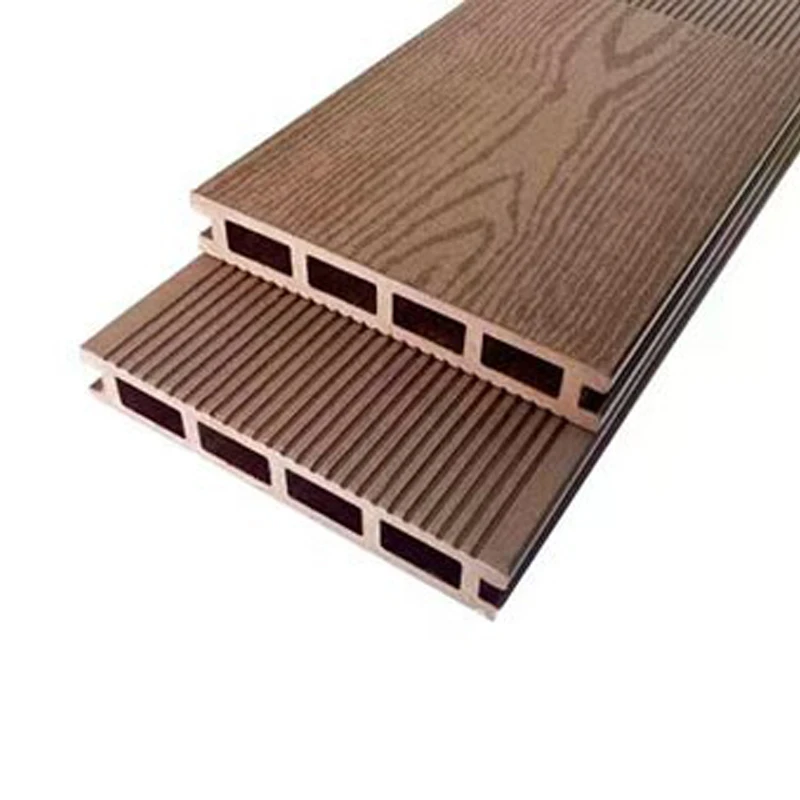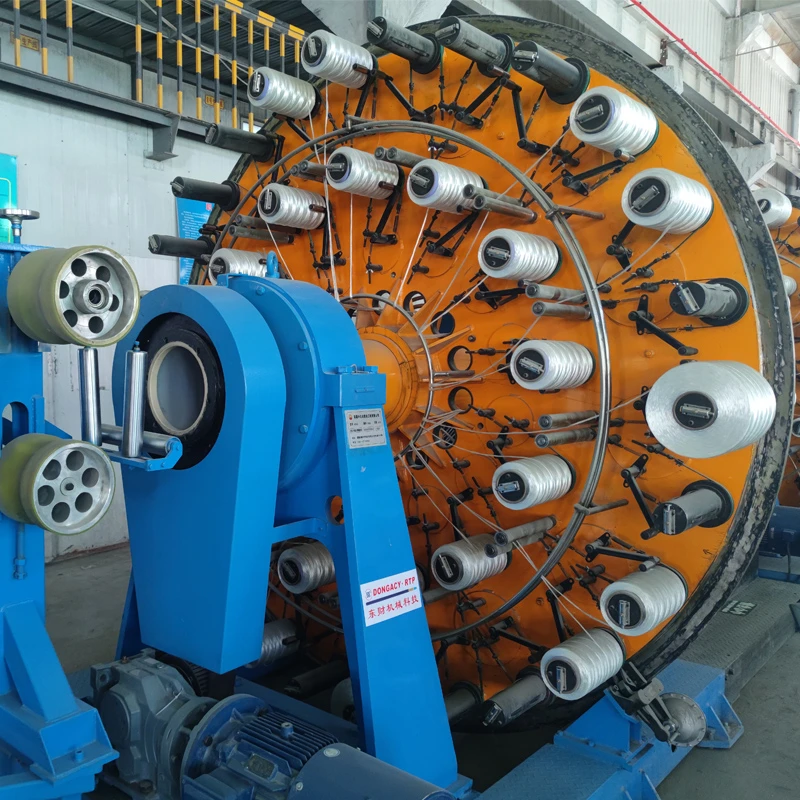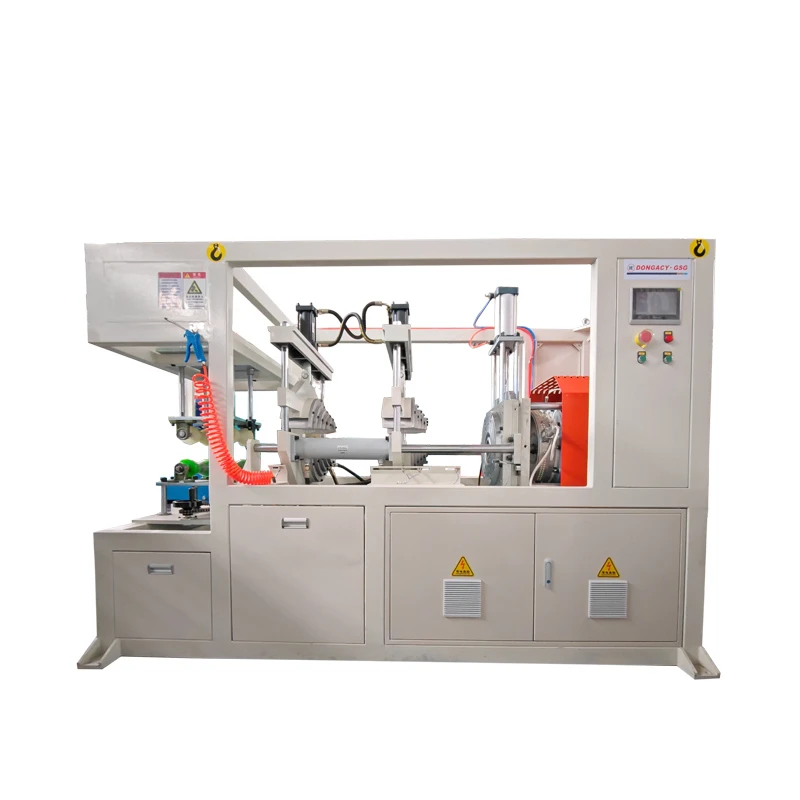
- Introduction to composite pipe production line
s and market trends - Technical advantages of composite pipeline solutions
- Comparative analysis of leading composite pipe production line manufacturers
- Customization capabilities and tailored production solutions
- Application case studies highlighting performance and results
- Future trends and sustainability in composite pipe manufacturing
- Final thoughts on choosing an ideal composite pipe production line
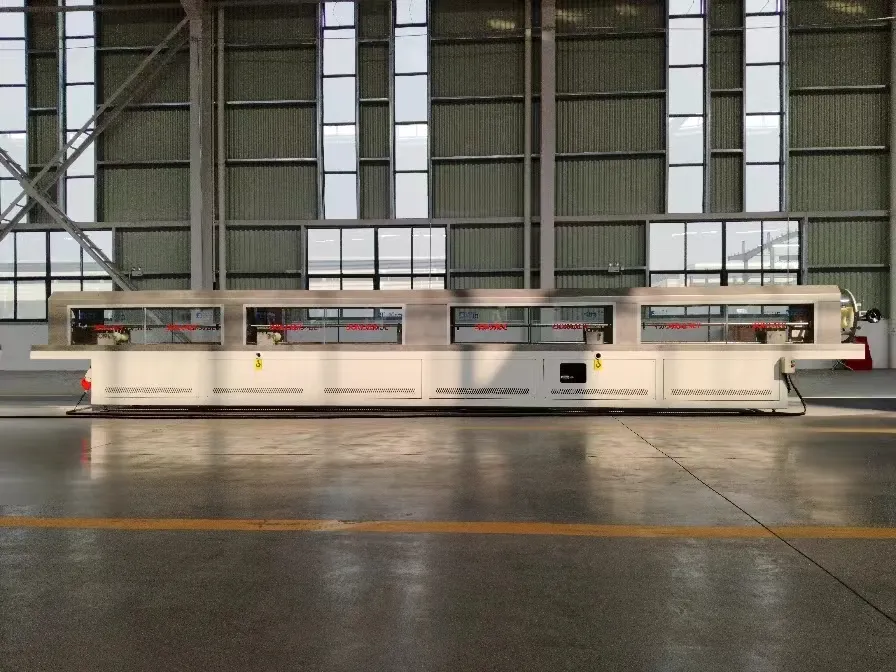
(composite pipe production line)
Introduction: The Evolving Landscape of the Composite Pipe Production Line Market
The global market for composite pipe production lines has experienced remarkable growth over the past decade. Rising demand for lightweight, durable, and corrosion-resistant pipeline solutions has propelled composite technologies to the forefront of industrial engineering. According to industry research, the worldwide composite pipeline market exceeded USD 9.1 billion in 2023, with forecasts projecting a 5.8% compound annual growth rate through 2030.
This surge is attributed to the increased adoption of advanced materials and automation in manufacturing processes. Infrastructural developments across sectors such as oil and gas, municipal water systems, and industrial fluid transport have fueled the need for next-generation production capabilities. A well-configured Composite Pipeline Production Line is now essential for manufacturers aiming to meet stringent quality demands and scale operations efficiently.
As competition intensifies, differentiation hinges upon innovation, customization, and strategic vendor selection for both composite and pvc pipe production line applications.
Technical Advantages: Enhanced Performance and Efficiency
Technological advancements have significantly reshaped the fabrication of composite pipes. Integrated production lines now leverage automated winding, high-precision resin mixing, and sophisticated extrusion systems to deliver consistent quality and exceptional throughput.
Major technical benefits include:
- Hybrid Material Utilization: Combining polymers with reinforcing fibers (such as glass or carbon fiber) dramatically increases tensile strength and chemical resistance, often surpassing traditional metal or pure plastic alternatives.
- Process Versatility: Modern lines accommodate diverse pipe diameters and wall thicknesses, from micro-scale medical tubing to large-diameter oilfield pipes.
- Energy and Resource Optimization: Automated temperature control and material dosing reduce scrap rates, achieving yield rates exceeding 98% in leading facilities.
- Superior Bonding: Innovations in layer fusion and surface treatment create seamless interfaces, achieving up to 40% greater burst pressure tolerances compared to legacy systems.
Manufacturer Comparison: Quality, Flexibility, and Innovation
Selecting the right composite pipe production line provider is pivotal. Here’s a comparative overview of top manufacturers, focusing on technological capabilities, global presence, production flexibility, and after-sales support.
| Manufacturer | Max Pipe Diameter (mm) | Production Speed (m/min) | Automation Level | Key Technology | After-Sales Service | Export Regions |
|---|---|---|---|---|---|---|
| Evonix Systems | 1200 | 12 | Full-Automatic | Multi-axial filament winding | 24/7 global | Europe, Americas, APAC |
| PVCProTech | 800 | 15 | Semi-Automatic | Smart extrusion monitoring | Remote diagnostics | Asia, Africa, South America |
| PipeFusion Inc. | 1000 | 10 | Full-Automatic | Laser-guided heating zones | On-site & virtual | Europe, Middle East |
| ComposiLine Tech | 1600 | 9 | Full-Automatic | Robotic layer placement | 12-month warranty | Worldwide |
It’s clear that the breadth of offerings requires attention to bespoke requirements, such as pipe size, speed, and post-installation support.
Customization: Tailored Solutions for Maximum ROI
No two projects are identical; this axiom drives manufacturer innovation within the composite pipe production line sector. Custom engineering supports a spectrum of needs, from unique resin formulations to variable reinforcement patterns and rapid tooling swaps.
- Material Adaptability: Lines can switch between PVC, HDPE, and advanced composite blends without extensive downtime, maintaining throughput integrity.
- Digital Integration: IoT-enabled controls facilitate live process adjustments, predictive maintenance, and data-driven optimization for each batch.
- Scalability: Modular configurations allow phased upgrades, enabling producers to meet surging demand and future-proof investments.
Application Case Studies: Proving Performance in the Field
The versatility of composite and pvc pipe production lines is best illustrated by real-world deployments.
Case Study 1: Offshore Oil Operations
An operator in the North Sea deployed a custom composite pipeline system assembled on-site using mobile production lines. Installation speed improved by 38%, maintenance costs dropped by 25%, and 10-year service life was validated through rigorous testing.
Case Study 2: Municipal Water Supply
A major Asian city retrofitted 18 km of aging water main with pipes manufactured on a high-speed PVC production line. Project timelines outperformed expectations by 20%, leakage rates were nearly eliminated, and the system achieved ISO 4427 certification in record time.
Case Study 3: Chemical Processing Plant
In a European chemical plant, a hybrid composite pipe system demonstrated extreme resistance to caustic fluids, reducing pipe replacement frequency from every 2 years to over 8 years and achieving a total cost of ownership reduction above 40% over standard steel lines.
Such examples underscore the tangible operational advantages and measurable return on investment enabled by modern pipeline production technologies.
Future Trends: Sustainability and Smart Manufacturing in Composite Pipeline Production
Looking ahead, sustainability and digital transformation rank as central drivers in the composite pipe manufacturing industry.
- Recycled Materials: There’s a growing trend towards incorporating post-consumer polymer waste into new pipe production, supporting circular economy initiatives and reducing landfill dependence. Leading plants report up to 30% recycled content integration without compromising mechanical performance.
- Green Energy: Facilities are adopting renewable power sources and energy-recovery systems. For instance, solar-assisted curing and closed-loop water cooling are now standard in state-of-the-art plants.
- Industry 4.0 Readiness: Smart sensors, cloud-based analytics, and AI-driven quality control are revolutionizing how lines are operated and maintained, fostering zero-defect manufacturing goals and predictive asset management.
- Global Standards: Harmonization of specifications—such as ASTM, EN, and ISO—empowers transnational supply chains to deliver consistent performance regardless of local regulations.
Conclusion: Selecting the Optimal Composite Pipe Production Line for Long-Term Success
Navigating the complex landscape of composite pipe production line technologies demands deep technical insight and careful vendor selection. Whether the objective is to expand output with advanced pvc pipe production lines or to pioneer novel applications with hybrid composites, strategic planning is paramount.
By assessing technical features, customization capacity, demonstrated field results, and sustainability credentials, stakeholders can unlock not only superior operational performance but also enduring economic value. As industry benchmarks continue to advance, today’s investments lay the foundation for tomorrow’s resilient pipeline infrastructure—enabling safer, more efficient, and environmentally conscious networks worldwide.
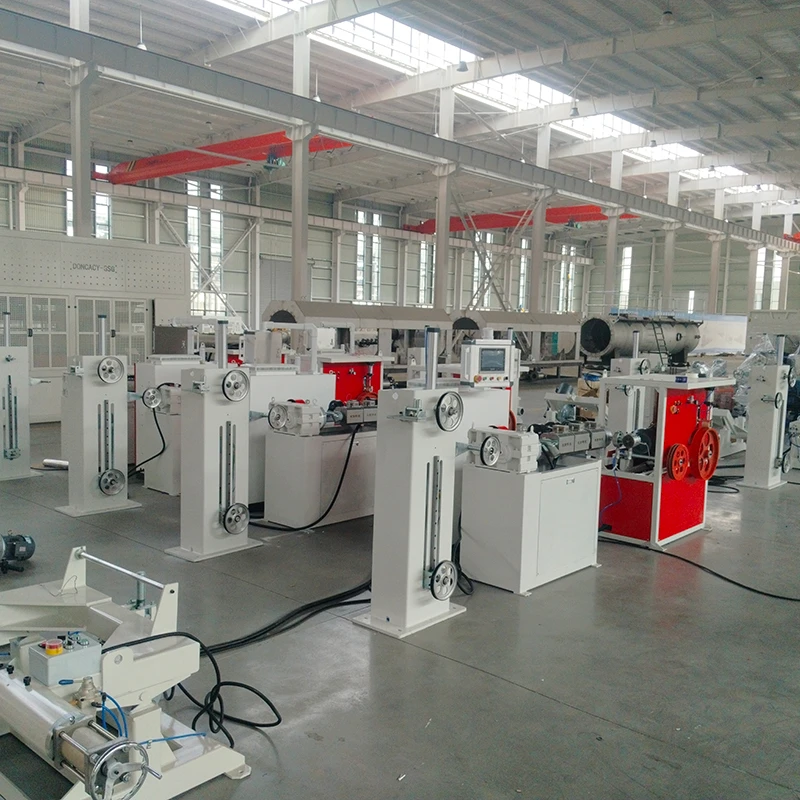
(composite pipe production line)
FAQS on composite pipe production line
Q: What is a composite pipe production line?
A: A composite pipe production line is a set of automated equipment used to manufacture pipes made from multiple materials, such as plastic and metal. These lines ensure efficient, high-quality pipe production. They are widely used in construction, water supply, and gas transport industries.Q: What materials can a Composite Pipeline Production Line process?
A: A Composite Pipeline Production Line can process a variety of materials including PVC, PE, steel, and aluminum. The combination depends on the required properties of the final pipe. This versatility allows production of strong, corrosion-resistant pipes for many applications.Q: How does a pvc pipe production line differ from a composite pipe line?
A: A PVC pipe production line specifically manufactures pipes solely from polyvinyl chloride (PVC). In contrast, a composite pipe line combines two or more materials in one pipe. This results in pipes with enhanced strength and durability compared to single-material pipes.Q: What are the advantages of using composite pipe production lines?
A: Composite pipe production lines enable the creation of pipes with superior characteristics, like high strength, flexibility, and corrosion resistance. They also improve production efficiency and reduce waste. These advantages make them popular for critical infrastructure projects.Q: Can composite pipe production lines be customized for specific needs?
A: Yes, composite pipe production lines can be tailored for different pipe sizes, shapes, and material combinations. Customization ensures the equipment meets specific project requirements. This flexibility is beneficial for industries with unique piping demands.-
PVC Profiles: The Future of Durable and Cost-Effective Construction SolutionsNewsJun.06,2025
-
PVC Pipe Extrusion LineNewsJun.06,2025
-
High-Quality Polyethylene Pipe Production LineNewsJun.06,2025
-
High-Performance Tube Production LineNewsJun.06,2025
-
Advanced Plastic Pipe Production LineNewsJun.06,2025
-
Hdpe Steel Wire Mesh Reinforced Polyethylene Skeleton PipeNewsJun.06,2025
-
Tube and Pipe ManufacturingNewsMay.14,2025

